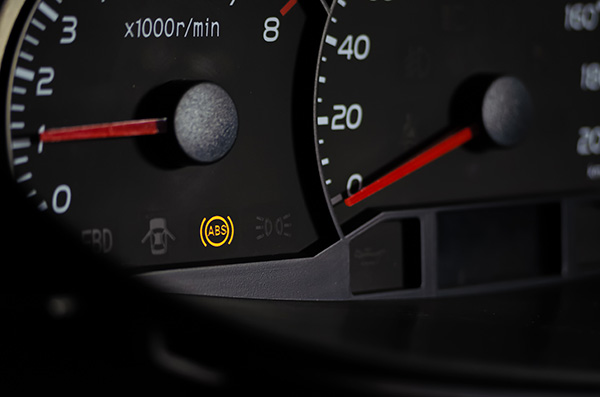
Your dashboard is full of symbols designed to alert you to potential issues, and one of the most important is the ABS warning light. If you’ve ever noticed it glowing in amber while driving or during startup, it’s worth paying attention. ABS, or Anti-lock Braking System, plays a major role in your car’s safety, especially in slippery or emergency braking situations. When that light turns on and stays on, it means something in the system isn’t functioning as it should.
Here’s what that light means, why it comes on, and what steps you should take next.
What Is the ABS
The ABS system helps prevent your wheels from locking up when braking hard or on slick surfaces. Without it, you could skid uncontrollably during sudden stops. ABS uses sensors and electronic control modules to monitor wheel speed and adjust brake pressure in real time, giving you better control of your vehicle while reducing stopping distance in many scenarios.
While the system doesn’t help you stop faster under normal conditions, it plays a crucial role in emergency braking or low-traction situations.
Why the ABS Warning Light Turns On
This warning light usually illuminates when the system detects a fault. Most cars will briefly display the light when you start the engine—that’s normal. But if it stays on after a few seconds or comes on while you’re driving, something is wrong.
Here are a few common causes:
- Faulty ABS wheel speed sensor
- Damaged or dirty tone ring
- Malfunctioning ABS control module
- Blown fuse or wiring problem
- Low brake fluid level in the master cylinder
When the light is on, the ABS system is disabled, and your brakes return to standard operation. Your vehicle will still brake normally in dry conditions, but it may not perform safely in a skid or on wet roads.
Is It Safe To Drive With the ABS Light On
In many cases, yes. Your basic braking system is still functional, but you should be cautious, especially in bad weather. Without ABS, you may lose steering control during panic stops or when braking on slippery roads.
Driving with the light on for an extended period is not recommended. If the issue is ignored, it could lead to other braking system problems or increase your risk during emergency maneuvers.
How Technicians Diagnose ABS Light Issues
When you bring your car in, a technician will use a scan tool to access the ABS module and retrieve any trouble codes. These codes help pinpoint which sensor or component is malfunctioning.
If a wheel speed sensor is faulty or giving irregular readings, that’s often the first place the technician will look. They may also inspect the sensor wiring, tone rings, or check for signs of corrosion or debris that could interfere with readings.
For electrical or control module problems, more in-depth testing may be needed. This could involve checking for voltage at different connection points or ensuring all ABS-related fuses are intact.
What Happens During ABS Repair
Once the source of the problem is identified, repairs may involve:
- Replacing a bad wheel speed sensor
- Cleaning or replacing a dirty or damaged tone ring
- Repairing or replacing wiring or connectors
- Replacing the ABS control module if it has failed
- Flushing and refilling brake fluid if the system detected low levels
The complexity of the repair depends on the part involved. Sensor replacements are usually straightforward and affordable. Control module replacements are more involved but necessary for safe vehicle operation.
Don’t Confuse ABS With the Brake Warning Light
It’s easy to mix up the ABS light with the red brake warning light. The latter typically means low brake fluid, a problem with the master cylinder, or an issue with the hydraulic brake system itself. If both lights are on at the same time, your car may have serious braking problems that require immediate attention.
Trust Your Brakes to B&C Auto Center in San Jose, CA
If your ABS warning light is on, don’t take chances. B&C Auto Center in San Jose, CA, offers complete diagnostic and repair services for modern braking systems. Our technicians can quickly identify the issue, explain your options, and get your car braking safely again.
Contact us today to schedule an inspection and make sure your vehicle’s safety systems are working as they should.